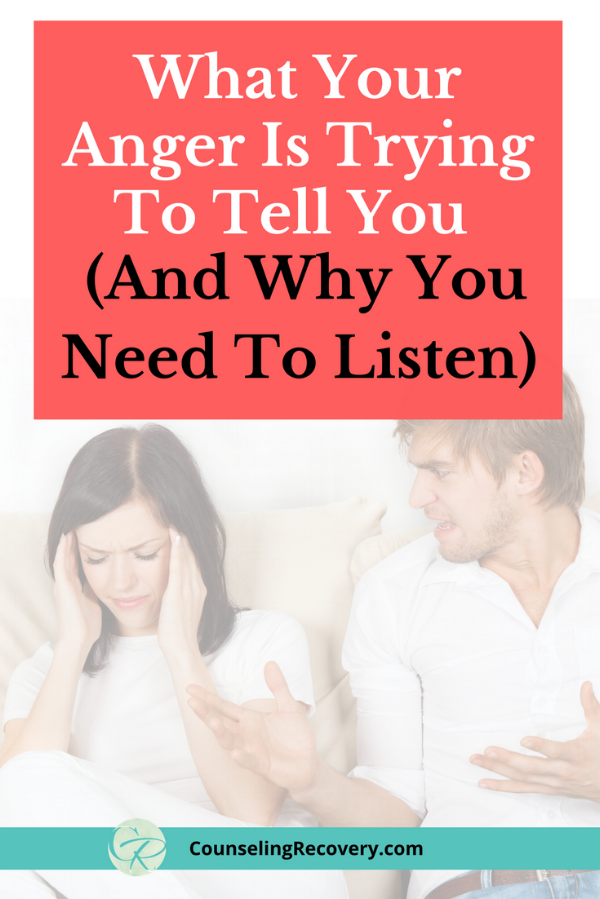What Anger Is Trying to Tell You
Anger is one of those feelings that you might ignore initially because it's a pain. It takes time and a focused effort to learn how to manage by yourself.
This blog shows how to cope with anger as a means of self-care and healthy communication.
But first, let’s go back to childhood.
We’re taught at a young age not be angry. Instead we hear messages like;
Be nice.
Always be helpful.
Do whatever is necessary to be liked.
Don't think of yourself, only think of others.
As you get older, self-care gets lost in the busyness of life. Maybe you’re taking care of aging parents or trying to keep up with the kids' activities. Or, you're a single parent doing all the heavy lifting by yourself. The list goes on and on.
All these messages translates to: don't express how you really feel - just suck it up.
A Stressed Life Is Not Fun
When you’re overworked, no one understands how much you do in a day - and no one asks. You might snap at your partner or yell at the kids without knowing why.
Unchecked stress easily becomes anger.
Without the right tools to manage stress, you may have trouble sleeping or start drinking to relax. True rest becomes almost impossible.
At this point life isn't fun anymore, and it needs to stop. You're empty. A slow brewing resentment builds up inside. You stuff your feelings and try to keep going.
Anger is a Gift
Sooner or later, feelings of anger will get your attention. You may notice feeling more irritable or on edge. Please don’t ignore these feelings. They are pointing you towards what isn't working, or an aspect of your life that's out of whack. This is how anger is a gift to you.
Instead of judging yourself for feeling angry, look for why you're feeling that way. It's not because you're selfish or wrong. It's not silly. No matter what it is - you need to find out what's causing this anger.
Then you can take the necessary action you need to take care of the situation or make a different choice.
Healthy vs. Unhealthy Anger
Anger isn't bad or wrong. When it’s healthy you can express it without blame. Personal space is respected and you’re willing to admit mistakes. On the other hand, unhealthy anger can be aggressive, intimidating or even indirect.
Sarcastic, hurtful comments leak out because you can’t say what you really mean. Or, the focus is on making the other person wrong and avoiding accountability. Unfortunately, when anger gets physical it hurts the ones we love.
I've created a free cheatsheet for 20 Things to Do When You're Angry to my free resource library - sign up below!
In order to manage anger effectively, you need to identify what's causing it. Some of these might surprise you because at first glance they aren't really about anger - or are they?
Tips on Where to Start:
The differences between unhealthy and healthy anger
Do you do everything yourself and avoid asking for help?
Are you physically exhausted from doing too much?
Do you need to pay attention to emotions so they don’t build up?
Do you avoid admitting hurt or angry feelings?
Do you need to say no more often?
Do you ignore your own needs for the sake of others?
Do you go with the flow instead of speaking up?
When you find out why you're angry, you'll see what needs to change. Often, it's about setting healthy boundaries. If you don't want to do something, stop making yourself do it.
Allow yourself to say no. Start expressing how you really feel. By honoring those feelings, they will point you in the right direction. For more help with boundaries read my blog 10 Steps for Setting Healthy Boundaries.
Your Next Steps
Anger signals you that something isn't right. Sometimes it's about needing to take care of yourself first.
Make one small change towards better self-care and handling stress. Get more sleep. Say no to a volunteer position that's too much. Ask a friend for a favor so YOU get a break. Always doing leads to always stressing. Making time to relax and have fun is vital if you want to enjoy life.
Let your anger have a voice.
You may recognize anger as a pit in the stomach or a hesitation to move forward. Write it out for clarity. Over time you'll develop an intuitive sense when something is wrong. Trust it. Let anger be your guide instead of the enemy.
You deserve to enjoy your life. Anger will guide you in the right direction if you listen.


